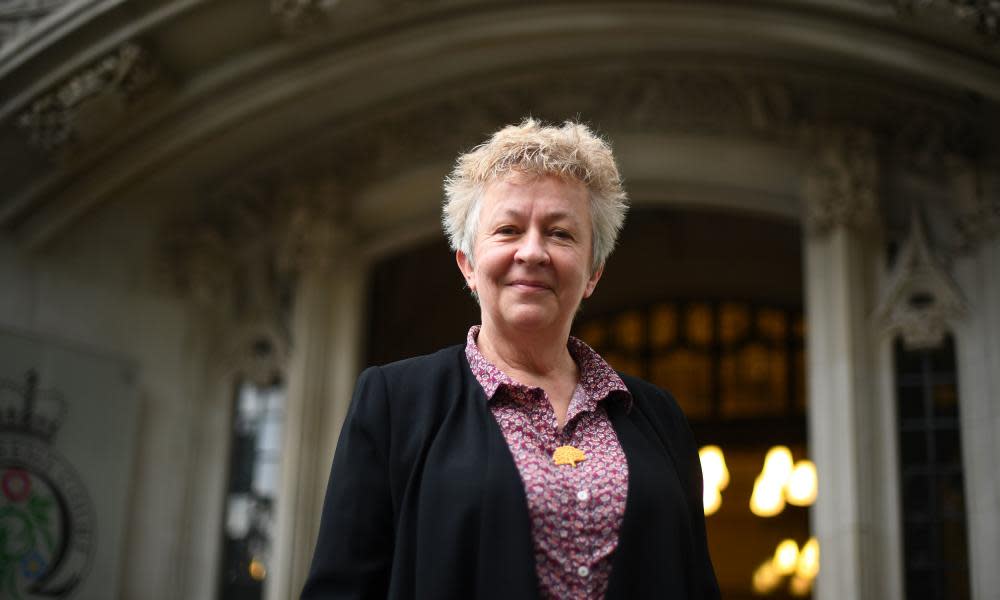UK judge granted whistleblower protection rights

A district judge who says she was bullied and had a breakdown after speaking out about the impact of legal aid cuts has been vindicated in a landmark whistleblowing case at the supreme court.
Claire Gilham, who was sent death threats and dealt with violent courtroom litigants, has secured for all judges the right to receive the standard employment protections given to other workers.
Related: ‘I had a moral duty’: whistleblowers on why they spoke up
Judges, like clerics, are deemed to be officeholders and are not therefore entitled to the safeguards granted to whistleblowers under the Employment Rights Act to make disclosures in the public interest.
Since the 1701 Act of Settlement, judges have been deemed to hold their office “during good behaviour”. In order to guarantee judicial independence, they can be removed only because of misbehaviour or inability to perform their duties.
Delivering judgment, Lady Hale said: “Subjecting a whistleblower to detriments such as bullying and victimisation would be an interference with her right to freedom of expression, protected by article 10 of the European convention on human rights. Thus denying her those remedies would be discrimination against her in the enjoyment of her convention rights …”
Hale explained: “Judge Gilham was appointed a district judge in 2006. After 2010 there were major cost-cutting reforms affecting the courts in her area and cases in which she sat. She raised a number of concerns, in particular about the lack of appropriate and secure court room facilities, her severely increased workload and administrative failures.”
The ruling means Gilham’s case will be returned to an employment tribunal for the merits of her claim to be considered now that she has been granted whistleblower protection rights.
Speaking outside the supreme court, Gilham said: “Winning is a great relief after these seven long years in which the rights of judges to speak out about conditions in the justice system have been denied.
“Judges are just as in need of protection when whistleblowing as others. The point of whistleblowing projection is to give confidence that it is safe to raise malpractice within any organisation.
“Providing the judiciary with whistleblowing protection can only enhance their independence and that is a valuable constitutional safeguard and it is good for justice.”
Gilham is still sitting as a district judge in Manchester. She said she would be back in court on Thursday.
Emilie Cole, a partner at the law firm Irwin Mitchell who represented Gilham, said the ruling would have a profound impact on others who work without contracts and were deemed to be officeholders. That category includes the clergy, trustees as well as many company directors and secretaries.
The whistleblowing charity Protect, which was represented by the law firm Leigh Day, intervened in the case.
Bob Matheson, the head of advice and advocacy at Protect, said: “Our most senior judiciary have firmly recognised the fundamental importance of whistleblowing rights for all of those in work and that the government must provide these rights in a consistent well-reasoned way, rather than through piecemeal reforms in response to scandals.
“We were all struck by the court’s observation that the government doesn’t have a plausible reason why our judges were denied the same right to call out wrongdoing as other workers, it just hadn’t put its mind to the issue.
“For much too long the burden of bringing our whistleblowing legislation up to date with the rest of the world has been placed on whistleblowers like Judge Gilham. To expect so much from those who have already spoken up on our behalf is unconscionable.”

 Yahoo News
Yahoo News 
